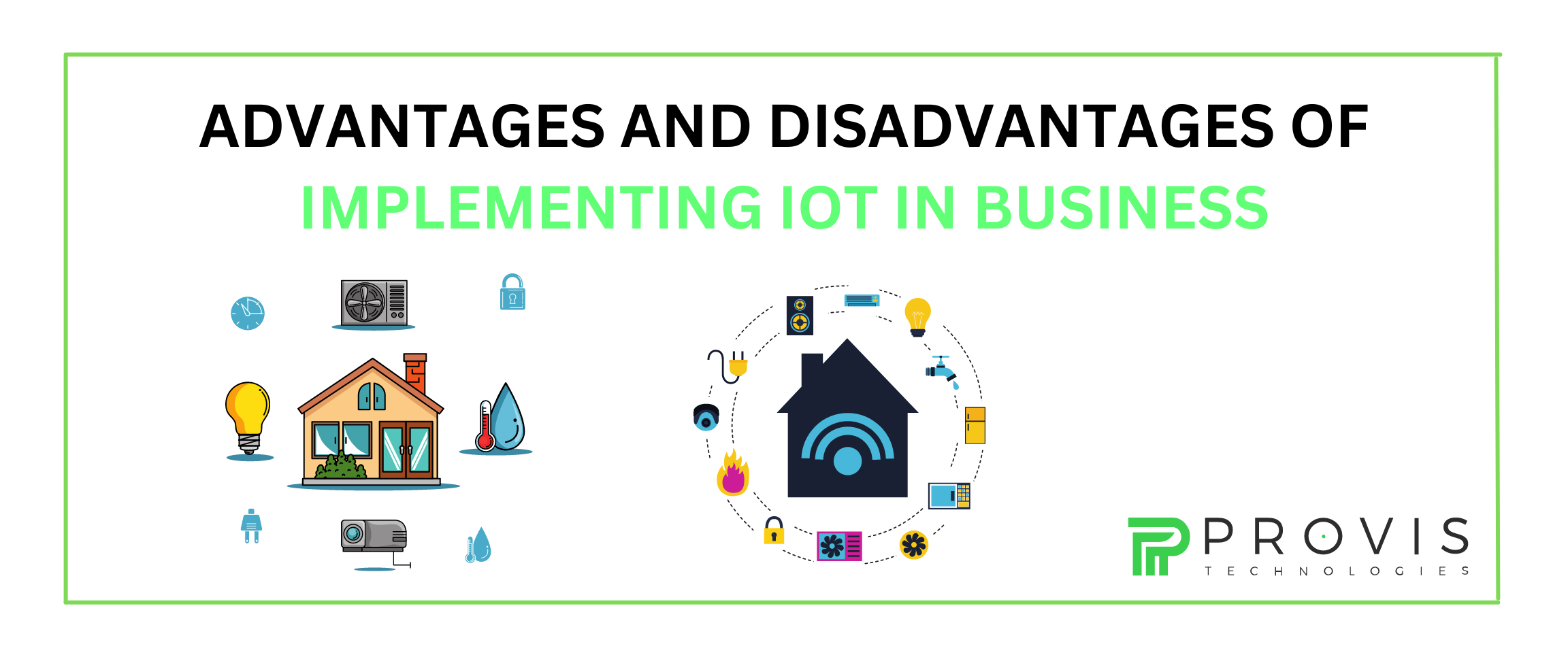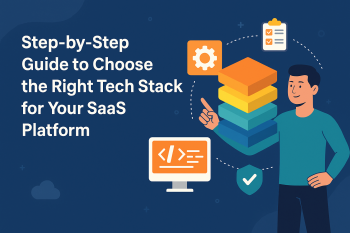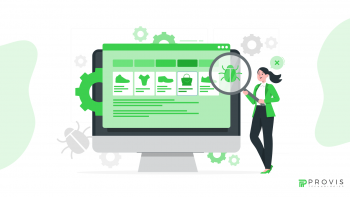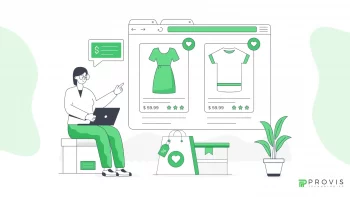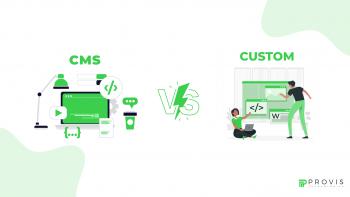Have you ever considered how these kitchen appliances, cars, and baby monitors connect to the internet? From how we travel to the shopping we do, IoT greatly impacts our daily lives. But what is the role of IoT in business, and why is it important now?
The way digital transformation is revolutionizing the tech industry, demand for IT solutions has accelerated like never before.
Digital transformation is essential for every business, and the Internet of Things is part of that. Staying up with changes is the main aim behind digital transformation. No company wants to lag behind its competitors, and IoT is considered a great help.
IoT in business is beneficial as it decreases operating costs and provides opportunities to enhance business operations. In addition, IoT can control your entire day and remind you of things you may forget, from controlling the house’s lights to weather reports and whatnot.
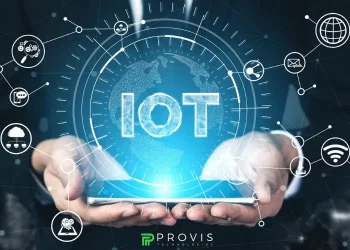
What is the IoT, and why is it important now?
The IoT is a system of interconnected computing devices embedded with sensors and technologies. It facilitates communication, connection, and data exchange over the internet.
The devices with IoT range from home appliances to cars. It facilitates the exchange and collection of data from a vast network of devices. By connecting to the internet, these ‘things’ exchange real-time data with the other connected devices.
It is transforming the concept of the “smart home” into reality.
Because of the IoT, seamless connectivity and communication are possible between people and things. In the coming years, IoT technology will rise to an advanced level and greatly impact people’s daily lives. IoT is vigorously established in smart homes, industrial tools, cities, agriculture, medicine, and many more fields.
One of the many advantages of the IoT is that it saves time by enhancing the industrial efficiency of applications. In addition, it upgraded the way of delivering services to users. IoT helps automate repetitive and mundane tasks and increases efficiency and productivity.
Despite some advantages and advancements, there are some serious concerns, like privacy and security.
Also Read: Top 10 Key Benefits of Artificial Intelligence for Business
Advantages of implementing IoT in business
Here’s a list of advantages that can help your business.
More work in less time
IoT greatly helps in saving time and resources by automating the repetition of monotonous tasks. It reduces the time to do a certain task and makes decision-making faster. IoT automates the time-consuming process, resulting in increased organizational efficiency.
It reduces the human effort required to complete a task. As it handles regular and repetitive tasks, human resources can utilize the time by managing the complex process that requires out-of-the-box thinking. The fewer workers, the lower the cost of business operations.
Lower operating costs
Helping businesses optimize their workflows and operations by giving them real-time data leads to cost-effectiveness. It reduces operational time and resources, which in turn results in lowering operating costs.
IoT devices facilitate management by handling scheduled and controlled maintenance. Along with individual departments, it manages the whole enterprise structure. IoT can be integrated into larger systems to reduce operational costs. It saves time and money by transferring the data packets to a connected network.
With the Internet of Things, devices can alert users to the need for maintenance before it creates a huge problem that may require a lot of time, human resources, and money.
Better business opportunities
With the rising competition, every company wants to acquire the market by providing a wide range of services and products, all at the same price and of better quality, and IoT is a great help with that.
With IoT, a company can handle challenging, time-consuming, difficult, and bulk production within the set time limit. The IoT is a game changer as it helps a company stay ahead of the competition. It is widely preferred as advanced analytics, and AI makes it easy for businesses to use the data according to the customer’s requirements.
Related Blog: The Future of AI Integration Services Trends to Watch
Better customer experiences
IoT devices analyze customer behavior and data. Businesses can collect different data from various channels and make decisions accordingly. According to past experiences, it uplifts the customer experience.
The gathered information helps customize the services per the customer’s requirements and provide great customer experiences.
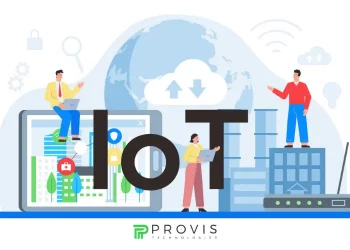
Disadvantages of implementing IoT in business
Here’s a list of disadvantages that can harm your business.
Security concerns
As things become more internet-based, they are more susceptible to security concerns. The biggest disadvantage of implementing IoT is the perceptible security issue. Devices should be protected from software and network-based attacks.
The fear of data leaks among customers can affect the business negatively.
Connected devices are prone to hacking and are not secure enough to secure user data. Also, they do not have additional security features to protect the network from malicious attacks.
If the security issues are addressed timely, a customer may find it easier to trust the company, which leads to damaging consequences for the business.
Insufficient security practices may hinder the development of IoT devices.
The development and implementation should be performed by experienced people, as they ensure the system is well-protected.
Don’t Miss: AI Algorithms – Everything You Need to Know
Privacy issue
Sometimes the user’s data is collected and used without concern. Data privacy is required, especially in the healthcare and finance industries. Harming the user’s privacy consists of tracking people and stealing the user’s personal information from different networks.
One of the many ways of collecting users’ data from laptops and smartphones is through wifi systems, where hackers gain access to and misuse the information for their purposes.
Technical complexity
For the users, IoT may look like a simple device that works in our direction, but it involves a lot of technical complexity. It is a complicated process from designing to maintaining and merging the technology in an IoT device.
If any technical error arises in the system, it will require time and a comprehensive upskilling of resources to locate and fix the error.
The problem arises while connecting so many devices; a single flaw can negatively affect entire devices. In addition, the Internet of Things is a diverse network, and software errors can lead to negative impacts.
Internet dependency
The Internet of Things is known for its immense interconnections among numerous devices since it depends on the internet for its work if there is no connection available to the outside world.
Devices might not work during a power outage, non-availability of mobile connections in rural areas, disastrous situations, data plan capacity, and many more. It requires good, stable, and constant internet connectivity and can’t function effectively without proper connectivity.
To solve this, the device requires a system that ensures low latency, uninterrupted connections, and consistent access to the internet.
You Know: AI in E-commerce Benefits of Artificial Intelligence in E-commerce
Final Thoughts
The Internet of Things is creating an evolution in the lives of people. With its rising popularity, IoT will become a more promising technology soon.
The capabilities have been impressive since inception, but the drawbacks must be addressed. It requires systematic implementation, proper usage, and an ethical approach. Integration of IoT in business requires a lot of expertise and effort, but with a structured plan, IoT can be a great help to businesses. Therefore, it is advisable to hire experienced professionals for better results.
With every important point taken into consideration, the IoT can work wonders.
Written By
Author's Picks
- How to Recover Abandoned Carts Using WhatsApp & SMS Automation
- 22/04/2025
- Step-by-Step Guide to B2B Web Application Development in 2025
- 26/02/2025
- How to Design an Effective UX Design Strategy
- 04/07/2023
Categories
- AI for Startups
- AI in Web Development
- AI Integration
- AI Platforms
- AI Prompt
- AI Tools
- AI Trading Software
- Android App
- Android vs iOS Development
- Angular
- API
- API Development
- App
- app development
- App Idea
- App User Feedback
- Application
- Artificial Intelligence
- Audit Services
- Automotive Industry
- Awards and Recognition
- Business Consulting
- Business Website
- Chatbots
- CRM
- CRM for Financial Advisors
- Custom CRM
- Custom SaaS
- Custom Website
- Customer Service
- dashboard design
- Developing a Mobile App
- Digital Business
- E-commerce
- EMR Integration
- Finance
- Financial Advisors
- Financial Advisors
- GIT
- Health Insurance
- iOS App
- iOS App Development
- IoT Mobile App Development
- IoT Platforms
- IT Audit Services
- IT Consulting
- IT Strategies
- Java Development
- Laravel
- Lean Canvas
- Learning Management System
- Logistics Apps
- Mobile App Development
- MVP
- Native App
- News Aggregator Site
- OTT
- Outsourcing IT
- Payment Gateway
- predictive analysis
- Product Launch Strategy
- Progressive Web App (PWA)
- Prototype
- Recommender Systems
- Ruby
- SaaS
- SaaS Application
- SaaS Business
- SaaS Company
- SaaS Development
- SaaS Product
- SaaS Project
- Sales Funnel
- SEO
- Shopping Cart
- Software Development
- SSL and TLS
- Startup Checklist
- Technology
- Tetradic Color Scheme
- UI/UX Design Company
- Unit Testing
- User Flow
- User Testing
- Web Development
- Web Performance Optimization
- website Maintenance Services
- Website Migration Service
- Website Speed Optimization
- WooCommerce
- WordPress
